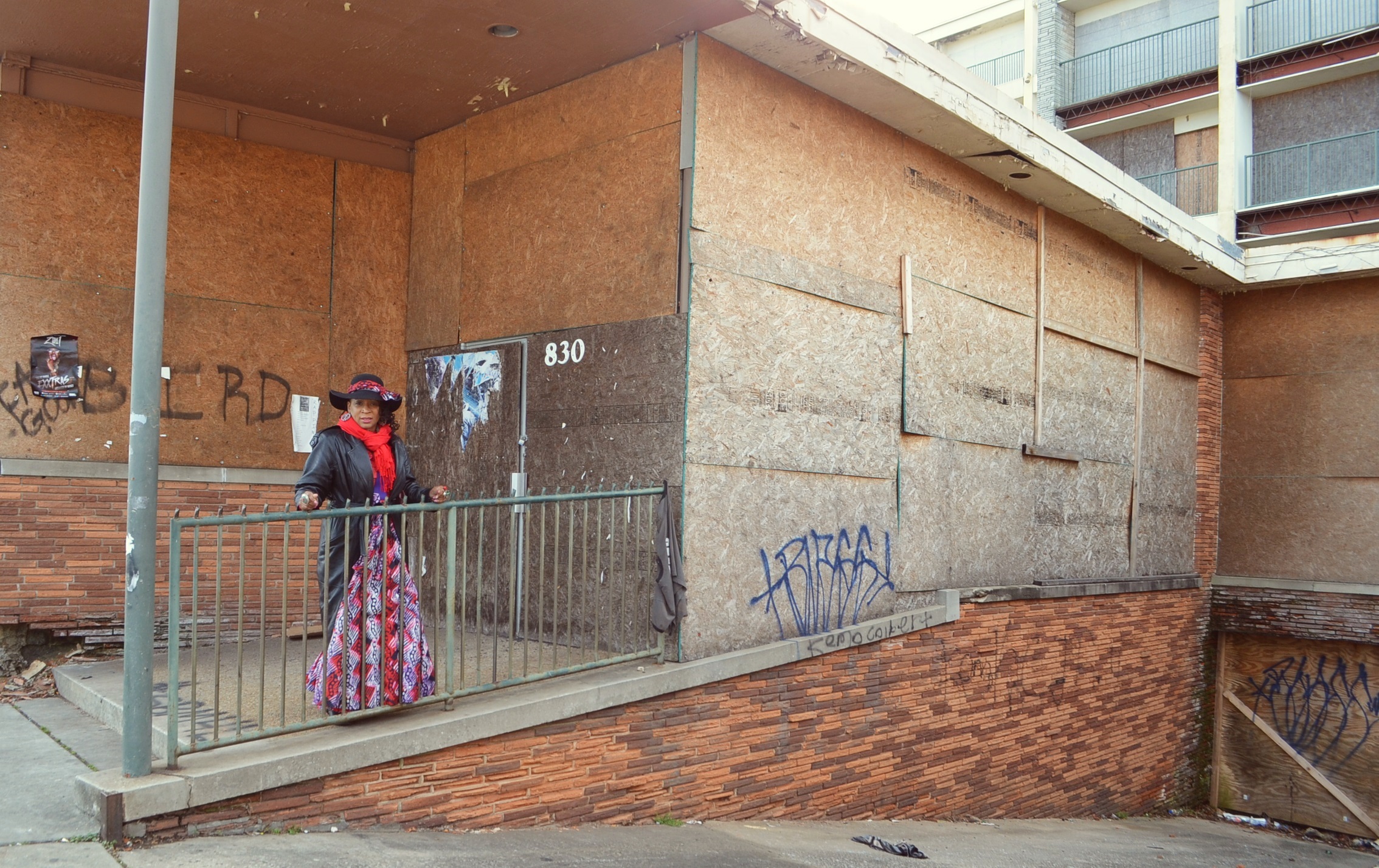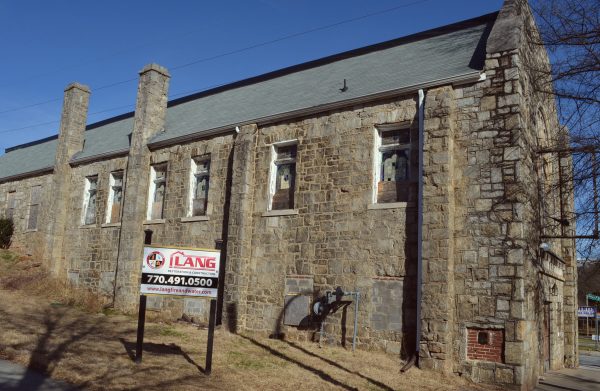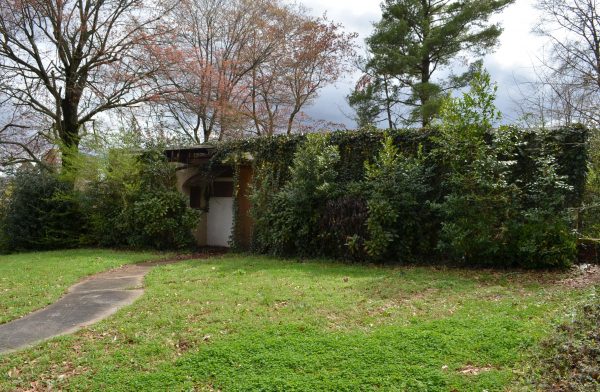Civil Rights Sites In Atlanta Remain Unrecognized, In Disrepair

Candy Tate stands in front of the former location of Paschal’s restaurant, where civil rights leaders used to strategize.
Stephannie Stokes / WABE
The old Paschal’s restaurant isn’t how Candy Tate remembers it from her childhood.
“It’s in pretty dilapidated condition. Pieces are falling off,” Tate said. “There’s now a fence around the property.”
The storefront stands along Martin Luther King Jr Drive, near the Atlanta University Center. It’s empty and boarded up, with graffiti covering the plywood.
Back when Tate’s grandpa used to bring her here decades ago, the restaurant was bustling.
“When he would walk in they would say, ‘hi Mr. Johnson and what are you having,’” she said. “And you’d see all of the local politicians meeting and greeting. It was city hall for the community.”
That was especially true during the civil rights era.
Leaders like Dr. Martin Luther King Jr. came to Paschal’s to strategize. So did students from the nearby black colleges and universities.
“Students would meet their parents after they’d been arrested during the student movement and be fed a meal,” Tate said. “And so the owners of the restaurant were very much into the civil rights movement.”
Sometimes the Paschal brothers even paid the protesters’ bail.
As a westside resident and educator at Emory and Clark Atlanta, Tate’s afraid history like that could be lost if this property continues decaying.
The former restaurant and the old Paschal’s motel are among several civil rights sites around Atlanta that have received little recognition, despite the city’s image as a destination for civil rights tourism.
And while Congress designated the memorial for King along Auburn Avenue a national historic park, some of the lesser-known landmarks have fallen into disrepair.
“There’s a lot here that could be restored and brought back to life,” said Georgia State history professor Glenn Eskew.

He said just across from Paschal’s, is the old West Hunter Street Baptist Church. Wood now covers its stained glass windows. It once was the base of the Rev. Ralph David Abernathy.
“Abernathy of course was King’s right hand. They played off each other, and they did so to the success of the movement,” Eskew said.
Up the road are more examples. Vines twist up the boarded-up home of Grace Towns Hamilton, who was Georgia’s first black female legislator.
Then, there’s Gaines Hall, where author and civil rights activist W.E.B. Du Bois had an office as a professor at Atlanta University. The building was damaged by fire.
Eskew said it’s true that Atlanta was the first to preserve civil rights history — with the King memorial. But the city still hasn’t captured the whole narrative.
“Dr. King was just part of the story of the civil rights movement. And Dr. King didn’t do it alone,” he said. “You know, there were thousands and thousands of people who were involved in the struggle.”
Preserving buildings, though, takes more than history.
Jack Pyburn, an architect specializing in historic preservation at Lord Aeck Sargent, said other things matter too: money and political will.
Pyburn said until recently black historical sites haven’t been acknowledged like they should.
“I think and I hope and I expect that we’re at the front end of that curve, we’re just now starting to explore and identify and appreciate and invest in the importance of African American history,” he said.
It’s worth noting that the King memorial only happened because of Coretta Scott King’s determination.
But with some of the civil rights sites around Atlanta, there might not be much time left. Pyburn has surveyed the old Paschal’s restaurant and he said it’s at a critical point.

“If there’s an urgency, it’s the fact that these properties were not built with big budgets, they were generally because of the circumstances, they were modest structures,” Pyburn said. “And so they need attention.”
It’s possible that attention might still come.
Atlanta City Council member Ivory Lee Young Jr. represents the westside neighborhoods where many of these landmarks are. And he said the city’s talking about creating a new historic district along Martin Luther King Jr. Drive.
“There’s a lot of energy and excitement and we’re going to do everything we can to make this a priority,” Young said.
Still, that designation would only make it difficult to tear these sites down. Clark Atlanta University, the current owner of Paschal’s, declined to discuss its plans for the property.
Candy Tate wants to see the old Paschal’s actually restored. She said the place matters to her personally — because of her childhood memories. But it should matter to everyone.
“What happened here at Paschal’s, right where we’re standing is the story of the nation,” Tate said.








